
Why Did Jesus Have to Die on the Cross?
Why did Jesus have to die on the cross? This talk addresses 6 misconceptions about the cross and its significance.
Explore some of the key beliefs of Christianity and find out why Christians believe they are reasonable.

Why did Jesus have to die on the cross? This talk addresses 6 misconceptions about the cross and its significance.

This video examines the historical evidence for the life of Jesus, including discussion of the non-biblical evidence.

Should we be certain about anything to do with God? Is radical uncertainty about God just being respectful of his greatness?

Professor Gary R. Habermas wrote this book for 'Christians who doubt' as well as those who are just a little unsure about their faith.

Explore why Jesus' death on the cross is central to understanding God’s love, justice, and forgiveness, challenging common misconceptions.

Reflections on the resurrection of Jesus and what it says to us about our own resurrection life.

Is the idea that Jesus is both God and man confusing, unnecessary and wrong?

A Long Way East of Eden: Could God explain the mess we're in? examines the significance of the ‘God-question' and the impact of…

Some people say there is no 'truth', each person decides what is true for them. How might a thoughtful person answer this view?

Do any other ancient documents help to confirm the trustworthiness of the New Testament?

This simple advice will help you answer tricky questions about what the Bible says.

Paul Coulter takes an in depth look at the violence in the Old Testament that was commanded by God and asks how we should understand it.

Many people think Jesus was real, but that his followers exaggerated his identity. Here are three reasons why we can trust the biblical…
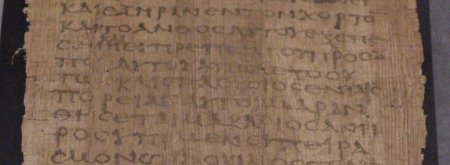
A careful consideration of the likely dates at which the New Testament documents were written.

The October 2000 issue of The Atlantic Monthly featured a perceptive, and, to many, a surprising essay on the renewal of evangelical…

Seven book recommendations for giving to non-Christians.
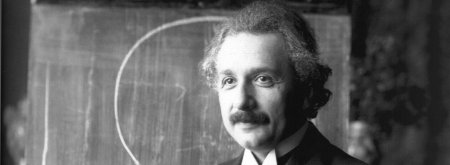
A response to the claim made by Dawkins in 'The God Delusion' and by other atheists that Einstein did not believe in God.

A popular story gives a salutary warning of the need to check our sources carefully and be careful in the arguments we use.

We could cite many reasons for the Old Testament being God’s Word, but the strongest argument comes from the Lord Jesus himself. As…
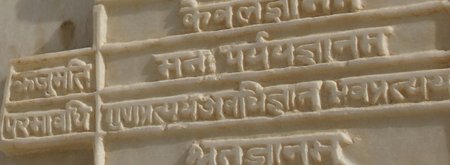
In this 50 minute talk, William Lane Craig considers how the philosophical study of knowledge (epistemology) illuminates the validity of…

Does the Bible condone slavery – at the very least by not condemning it? This lecture examines some of the issues we need to consider.
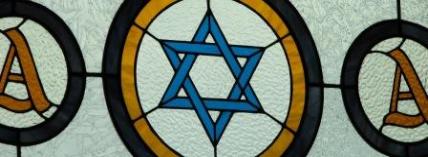
Atheists and Muslims often criticise the Christian concept of the Trinity as contradictory, meaningless or false. In this article, Peter S.…

One of the most perceptive analysts of the consequences of pluralism for the Christian churches is Lesslie Newbigin, who is able to draw on…

On the first week of April, 2006, the National Geographic Society announced the discovery of a lost gospel titled, 'The Gospel of Judas'.…

Orthodox Christians believe that Jesus is the unique Son of God in human flesh. However, some unbelievers, who may or may not believe Jesus…

[This talk gives] the background for what we’re going to look at in the next few sessions, which will be on the resurrection of Jesus…

What historical evidence is there for the life of Jesus and the first Christians?

What do we mean when we say something is true? That it corresponds with reality or that it 'works'? And does it matter which of these we…

This workshop will consider the relationship between faith and reason, what might count as evidence for religious claims, and the…
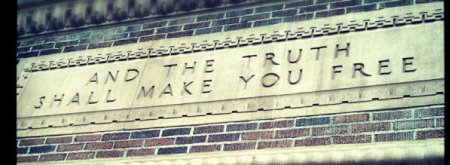
An examination of various responses to the question "What is Truth?"

Are there any substantial grounds to deny that Jesus existed? This article responds to the main arguments.

William Lane Craig considers one of the central concerns in the Philosophy of Religion - the coherence of theism.

An oft-repeated objection to the Trinity is that the Scriptures provide no theological basis upon which one can build a case for the…

What do people mean when they say that they 'have faith' in God? Is faith anything more than wishful thinking?

There are two elements in our title. Postmodernism and the uniqueness of Christ. What do we mean by them? What exactly is postmodernism?…

Although Jesus claimed to be the divine Son of God, His favorite self-designation by far was ‘Son of Man’. How do we know that…

Philosopher Peter S. Williams reviews the Christian, Hindu and Secular Humanist perspectives on themes of Truth, Faith and Hope in the…

David Instone-Brewer's new book The Jesus Scandals not only shows how the life and teaching of Jesus must have shocked his contemporaries…

A review of Philip Pullman's The Good Man Jesus and the Scoundrel Christ.

Why the so-called "Gospel of Jesus' Wife" is a modern forgery.

In the twenty-first century, can people really still believe in angels and demons?

Alex Bunn questions the assumption that ‘faith equals bias’. Although his article is based around his own specialty of…

The doctrine of Christ's divinity is the central Christian doctrine, for it is like a skeleton key that opens all the others. Christians…

Jesus said that to enter the kingdom of heaven a person must be “born again” (John 3:3). This consists of an act of the heart…

The Jesus Seminar claims that some of the words of Jesus recorded in the Gospels were actually said by him but others were invented by the…

A consideration of the relationship of science and certain Biblical issues, including the nature of miracles and the Exodus.

Dr John Dickson describes the key sources for our knowledge of the life of Jesus, assessing them from the perspective of an historian.

Evidence in the Talmud for the crucifixion of Jesus.
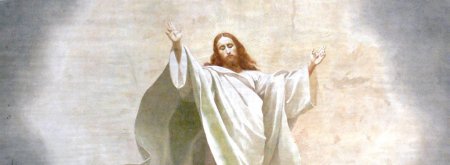
This article addresses three common obstacles to believing in the resurrection.

One of the most popular theories in New Testament study is that the Gospel of Mark was written first, and that both Matthew and Luke were…

The belief that Jesus rose from the dead is central to Christianity. But how can anyone believe it really happened?

There's a persistent belief that the God of the Qur'an and the God of the Bible are essentially the same. But does this stand up to…

Tom Wright explains what the Bible is and why it's worth reading.

Responding to the question of whether the existence of Hell means that God cannot be a God of love.

Why the case for the truth of Christianity has never been stronger - but Europe is a difficult place to spread that message.

Did the early Christian communities apply Jesus's teaching to the problems they faced or alter the facts to fit their agendas?

How many hand-written copies of the Gospel accounts are there? What does this reveal about possible mistakes?

You may have seen the recent programme "The Beauty of Books: Ancient Bibles" on BBC4, 8th February 2011. This well-produced and researched…

This workshop addresses the function of the will both in the formation of a belief and the critical review (audit) of one’s network…

Dick Keyes reflects on the three ideas of Pluralism, Relativism and Tolerance and the relationship between them. He argues that there is…

An interview with theologian and scientist Alister McGrath.

Are we good? Should we decide by comparing ourselves to other people or to God? Is goodness relative or absolute?

What does human society tell us about human nature? Are we essentially good or bad?
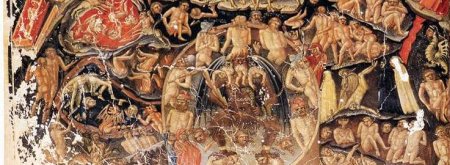
This talk considers the difficult issue of Hell - what it is and how a loving God can send anyone there.

Were the Gospel accounts corrupted as they were passed on? Was there any way to prevent this happening?

In a talk given at The Veritas Forum at the University of California, Santa Barbara in February 1998, Dr James Sire considers the role of…

Gavin McGrath examines whether we can talk meaningfully about truth. Is the truth 'out there' or perhaps 'in here'?

Who did Jesus really think he was? Did he actually claim to be God? And does it matter if he did?

A previous article addressed the question, ‘Does the Bible really attest to the deity of Jesus?’ by looking at several…

How do you respond when someone says 'Being a Christian is good for you, but I don't need that'? A look at the ramifications our…

Tim Keller's new book explores the question of how anyone in our age of scepticism could believe in Christianity.
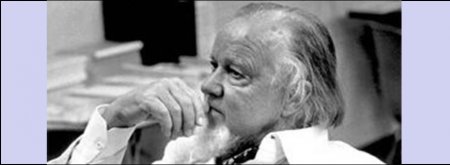
A reflection on the life of Francis Schaeffer, particularly getting into his ideas on Truth and their relevance for today.
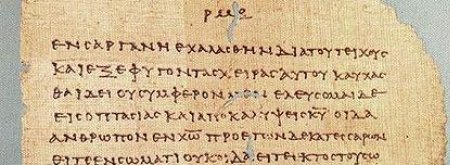
Adrian Holloway tackles the question of whether we can trust what we read in the New Testament or should dismiss it as unsubstantiated myth.

Did Jesus claim or imply that he was anything more than a prophet? Or did his followers transform him into the Son of God many years later?

Are the Gospels full of contradictions? What would have been seen as normal standards of trustworthy historical writing at that time?

An overview of some reasons to believe in God, with links to fuller resources and some recommended books.

This talk looks at who Jesus is and examines some of the misunderstandings about him, as well as his impact in history and the impact he…

'If Love Wins, What is Lost?' gives Paul Coulter's in-depth response to Rob Bell's controversial book 'Love Wins'

In a talk given at The Veritas Forum at the University of California, Santa Barbara in October 2000, Professor Craig Blomberg discusses new…

Greg Grooms reflects on knowledge, certainty and how we know what we know. After a whistlestop tour through the philosophical reflections…

The little robotic sparrow lying on its back twitching occasionally while stuck inside a window at the Tate Modern is a piece by the Danish…

Some would say 'Legal abortion is now the law of the land – get over it.' But is there a higher law? The Founding Fathers…

In this academically robust but accessible book, Peter J Williams addresses the trustworthiness of the Gospels.

Nabeel Qureshi, a former muslim, weighs up the evidence for both Islam and Christianity.

This talk puts the issue of sexuality and same-sex relationships into the wider context of Christian belief.
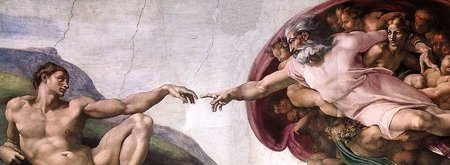
Scientism says that science is the source of all our knowledge. Does this make sense or are there other sources for what we can know?

Read this book if you want to be prepared to speak to anyone interested in why they can trust the accounts they read in the Gospels. And…

This talk, given by Stefan Lindholm from English L'Abri, considers the relationship between philosophy and theology – between…

Karen Armstrong was a Roman Catholic nun for seven years before she found she could no longer believe Catholic doctrines. She left her…

If your mother claims that you are an honest person, we may trust you that you will do what you say. Yet some reservation is understandable…

Where did God come from? Don’t we have to assume that if there is God, then there must have been something before Him that created Him?

The Scriptures tell us exactly who Jesus claimed to be and they clearly present Christ as God. The names applied to Christ in the New…

In this talk, Gary Habermas analyses the claims by James Cameron, in his Discovery Channel documentary 'The Lost Tomb of Jesus', that a…

Two sample chapters from Relativism: Feet Firmly Planted in Mid-Air by Greg Koukl and Francis J. Beckwith.

This three part seminar gives an historical overview of the various schools of thought on the subject epistemology - how we can know…

Preference or truth? Is there a difference?
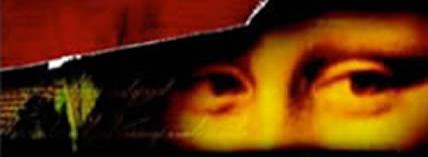
In this workshop, we will discuss the specific problems with the novel The Da Vinci Code from the standpoint of its handling of Christian…

How has the way art depicts humanity changed over time? How should the truths of the Christian view of humanity shape creative practice?

How can we explain mankind's dueling capacities for debauchery and greatness? Pascal argued Christianity held the answer.
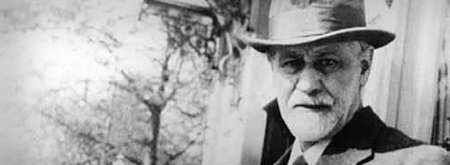
"You would think that wouldn't you?" By way of Freud's Father complex and Dawkins' memes, Melvin Tinker examines how C.S. Lewis might…
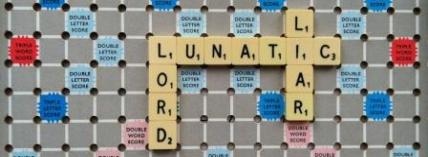
The atheist website infidels.org hosts a critique of Josh McDowell’s Evidence that Demands a Verdict. The article below responds to…

A response to the 'Who Made God?' objection to the Cosmological Argument.

One of the most commonly misunderstood ideas in the Bible concerns the teaching about the Trinity. Although Christians say that they…

Dr Little asks whether science and religion are completely different in how they find truth. Are there two ways of knowing - one by facts…

This talk explains why the claim that Jesus was no more than a moral teacher doesn't account for the evidence about him.

This video describes the discovery of the earliest copy of part of John's Gospel, the 'John Rylands Fragment'.

Professor Alan Millard critiques the BBC series The Bible's Buried Secrets. Dr Francesca Stavrakopoulou presented three BBC TV programmes…

Postmodern liberalism may sound liberating and enticing to its adherents, but it may be no more than a 21st century fairy tale for the…

Creating a work of philosophy that is both deeply rich in meaning and accessible to a non-philosophically-trained audience is a daunting…

The Gospel writers portrayed Jesus as claiming to be the 'Son of God', but can history verify this and, if so, what did Jesus mean by it?

Back in the mid-1960's Time magazine ran a cover story for which the magazine's cover was completely black, except for three words…

There have been times when Christians found it easy to believe in the justice of God, but found it difficult to believe in the love of God.…

Derrida lays many of his presuppositions out in a hard but very important essay called 'Structure, Sign and Play' in the Discourse of the…

Is the doctrine of hell a hindrance or a help in witnessing? Many evangelicals are ashamed of this biblical doctrine, viewing it as a…

There is an old parable about six blind Hindus touching an elephant. One blind man touched the side of the elephant and said it was a…

Once we've got at the facts behind the myths about Jesus, this final video considers what difference he makes to us today.

Can we know who wrote the Gospels? This video examines whether there is any evidence to support the traditional authors.

Do the Gospels give us any indication that they are using eyewitness testimony? Richard Bauckham examines some of the minor characters in…

This video examines the historical evidence that Jesus performed miracles.

A brief introduction to the Bible – what it is, how it has been put together and what it can mean for people today.

An overview article linking to specific resources that examine the historical reliability of the Old and New Testaments.
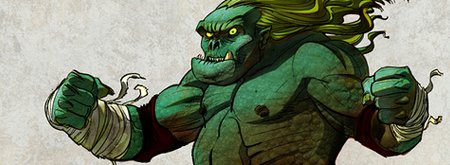
The Bible has become a happy hunting ground for many who want to undermine faith in the God of the Bible. After all, there are a lot of…

Why philosopher A.C. Grayling refuses to debate William Lane Craig.

Mark Stibbe’s latest book focuses on John’s resurrection account and offers an accessible, close reading of the passage which,…

This is a lovely little book. It is deliberately little; it is a shortened version of Dan Clark’s previous book Dead or Alive? I…

Absolute truth is often thought to lead to oppression and injustice. But what if it is the only way to real freedom?

Dr Timothy Keller considers the doctrine of the Word through reflections based around Psalm 19.

Get to the truth behind Dan Brown's best-selling novel The Da Vinci Code.

Some reflections on helping people handle questions about our faith.

This video considers how long it took before Jesus's first followers came to believe that he was the Son of God.

In this video, Richard Bauckham considers whether we can know who were the main witnesses behind the Gospel accounts of Jesus's life.

Were the Gospel accounts based on the testimony of eyewitnesses who were still alive when the Gospels were written?

How big are the differences between the hand-written copies of the Gospels' accounts of Jesus? Do these undermine what we can know about…

This talk covers some of the basic concepts of truth, logic and persuasion which are helpful when we are 'defending and communicating the…

A response to the controversial claim that Jesus had a wife.

After several ‘best-selling’ books by well-known atheists attacking religion, John Humphrys has responded with this highly…

This is a book that encourages as it informs, helping its readers as we seek to understand something of God and His ways. Its four parts…

When Richard Dawkins’ The God Delusion was published in 2006, it quickly became the rallying manifesto of what has been termed New…

The Zondervan Counterpoints series continues to produce extremely valuable volumes of the two-, three-, four-, and five-views variety on…

'No room at the inn' goes the traditional story. But is that really what the Bible says?

Nick Perrin investigates how the New Testament books came to be accepted into the Biblical 'canon'. Through an examination of the views of…

A talk on the relationship between intellectual proof and faith. How does faith fit in with thinking?

A review of Ian McEwan's Saturday.
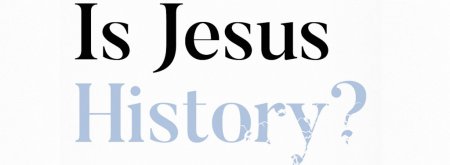
Is Jesus History? by Professor John Dickson explores how the life of Jesus and the claims of the Bible intersect with sources from the…

The way the Gospel accounts use the right names for people shows that they were about real people, based on reliable information.

Can we be confident that we have the original text of the Gospels? How does it compare to other ancient documents?

This video considers whether we can dismiss the accounts of Jesus's life simply because they describe miracles.

This talk challenges the New Atheist interpretations and condemnation of the Old Testament, including the destruction of the Canaanites.

There are many different views of Jesus. What's the truth?

What does the oldest fragment of the New Testament tell us?

Can the Bible tell us anything about God or is it just meaningless language?

Pilate entered the praetorium again and called Jesus, and said to him, “Are you the King of the Jews?” Jesus answered,…

In the book The Da Vinci Code the author Dan Brown poses a question and suggests an answer, in a discussion between the characters of…

In a talk given at The Veritas Forum at Texas A&M University, in February 2006, Dr Hugh Ross discusses whether there is scientific…

Advice for Christians in academic life and the workplace.

Who is Jesus? What did he claim? And how should we respond?

Many people today doubt Jesus was a real person. Here are 8 ancient non-biblical sources that provide evidence of his existence.

When the Jehovah's Witnesses (JWs) come to your door, if you get into a conversation with them on who Jesus is, you can expect them to…

What does the biblical account say about the star of Bethlehem? Is it historically credible?

Some people claim that the apostle Paul and later Emperor Constantine changed the pristine religion preached by Jesus for their own ends.…

Why a rabbi who considered the New Testament to be anti-Semitic changed his mind. Rabbi Isaac Lichtenstein was curious when he observed…

What could a Christian say in response? Well, wisdom often leads us to follow a certain course of action over many other options. For…

The virgin birth of Jesus Christ perplexes many people. Why is it such an important belief?

Is Christmas just a nice story 'for the children' or an historical fact that affects us all?
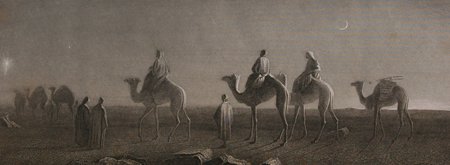
This lecture was given by Professor William Lane Craig at Nottingham University as a part of UCCF's Reasonable Faith Tour. The lecture is…

Never been to church? Been away from church for a while? This helpful book explores why it's worth going to church.

The way the Gospel accounts use correct place names shows that they were based on reliable information from first hand testimony.

Who is Jesus? Who did he claim to be? What questions might we need to ask? What kind of evidence is there?

Are the New Testament books an arbitrary or personal selection of what was available? Or is there more to it than that?
What are we to make of the Christmas story? Is there any truth in it? And if Jesus really was born, who was he?